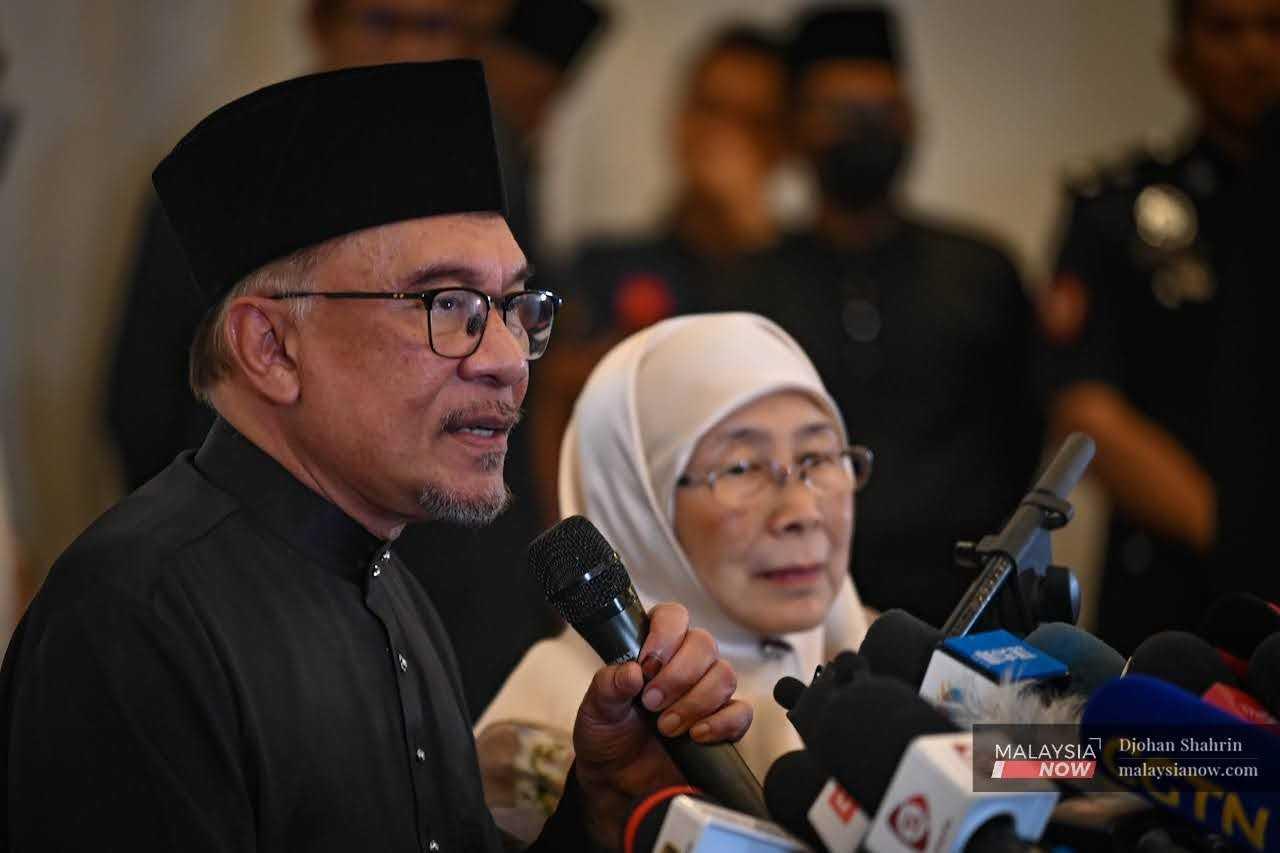Top editor of Israeli paper says Anwar's rise could present opportunity for ties with Malaysia
Esther Solomon compares Anwar to former leader Dr Mahathir Mohamad, who had taken a hard stand against Israeli policies at international forums.
Just In
The top editor of an influential Israeli newspaper said Anwar Ibrahim's appointment as prime minister could signal a new chapter in the Jewish state's relationship with Malaysia, where every succeeding government has condemned Zionism and openly backed the Palestinian struggle.
Esther Solomon, chief editor of the English-language Haaretz, also compared Anwar to former leader Dr Mahathir Mohamad, whose open condemnation of Israeli policies at international forums had led to him being labelled an "anti-Semite".
"Unlike his predecessor [sic] Mahathir, Malaysia's new PM Anwar Ibrahim doesn't call himself a 'proud antisemite'; indeed, his foes slur him as an 'agent' of Jews and/or Christians.
"Israel would love closer ties with Kuala Lumpur. Could this be the opportunity?" she commented on Twitter as she shared a report by Haaretz on Anwar's appointment.
Her comments were met with a flurry of angry replies, mostly from Malaysians, although many consisted of one-liners claiming there was no such country as Israel, and remarks by some who felt that any diplomatic gestures to Israel would be political suicide for Anwar.
A long debate on Anwar's alleged ties with Israel was renewed during the recent general election campaign, when his rival in Tambun, Ahmad Faizal Azumu, challenged him to state that his party PKR was not infiltrated by Israeli elements.
This followed the arrest of a group of Malaysians said to have been hired by Israeli secret service Mossad to abduct a Palestinian computer programmer wanted by Israel in September.
Days after the suspects were charged in court with kidnapping, pictures on social media surfaced showing one of them, a Malaysian named Raibafie Amdan, waving the PKR flag in a photo taken a few years earlier.
PKR had then denied that he was a party member.
The incident brought back a controversial statement by Anwar when he was interviewed by the Wall Street Journal in 2012, in which he said he would "support all efforts to protect the security of the state of Israel".
In an article on Anwar's recent appointment, Haaretz said his views showed that he was more open to establishing diplomatic ties with Israel.
"This was a significant statement from a senior politician in a country whose passports state 'valid for all countries of the world, except Israel'," the paper said.
"Despite his mixed record, (Anwar) Ibrahim is certainly more open to Israel than the hard-line Mahathir, which could potentially provide an opening for Israel to improve relations to some degree."
But the paper warned that any initiative of the sort would have to take into account the fact that 61% of Malaysians "have expressed antisemitic views", citing a survey by Zionist interest group Anti-Defamation League.
It also said Iran's cordial ties with Malaysia would be a hurdle for any future ties with Israel.
"Western intelligence has suggested that the country has become a hub for Iranian activity, and it is one of the few countries in the world that Iranians can visit without a visa.
"A 2015 article in a Malaysian newspaper described the country as a 'bridge' between Iran and other countries. This may explain why Iranians have come to Malaysia in the thousands to study, and why some seek to stay on afterwards.
"Iran has very significant infrastructure in Malaysia," the paper quoted an Israeli official as saying. "There’s a very dangerous convergence there between Palestinian students and Iranian expertise."
Subscribe to our newsletter
To be updated with all the latest news and analyses daily.
